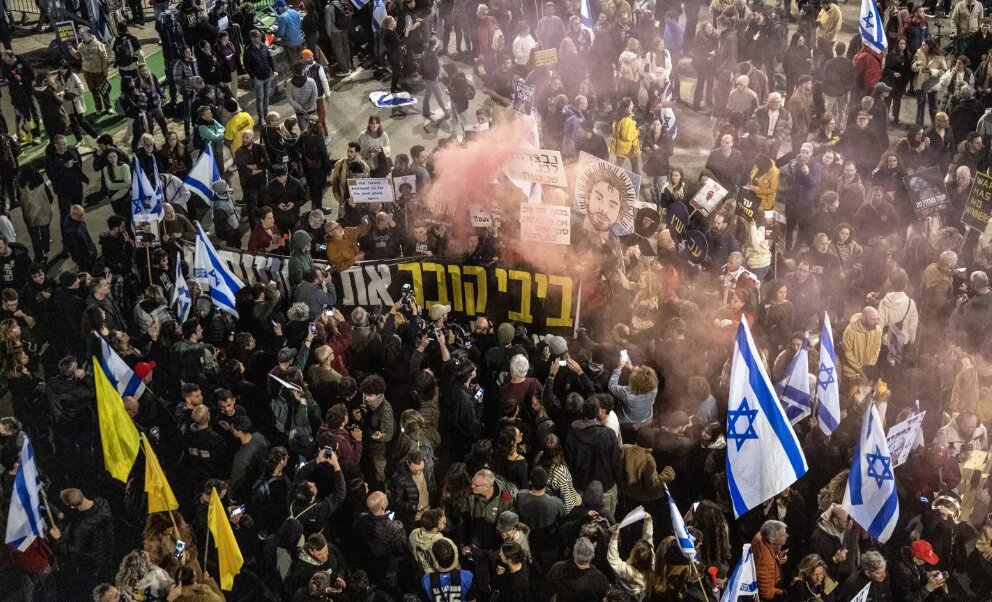Start of internal rupture: Israel on brink of social collapse

TEHRAN - The official approval of a plan for the complete occupation of the Gaza Strip by the cabinet of the Zionist regime has sparked a wave of protest and concern among the families of the hostages.
The Hostage and Missing Families Forum has issued a harsh statement warning that the implementation of this military operation will severely threaten the lives of the remaining hostages in Gaza.
"The Israeli government should not sacrifice the lives of the hostages for military objectives. We demand immediate access to an agreement for the return of our loved ones," part of the statement reads.
Simultaneous with the approval of the plan, individual protests have also intensified.
At a Knesset committee meeting on Monday, Einav Zangauker, whose son Matan is being held hostage, urged reserve soldiers to refrain from joining the military operation. "I ask the soldiers, for the sake of preserving human conscience, not to participate in a war that threatens the lives of our children," she emphasized.
Meanwhile, the army of the Zionist regime has announced that it has called up thousands of reserve forces to participate in the new operation in Gaza, a move that has further heightened the concerns of the hostages' families.
Israeli political and social experts believe that the continuation of this situation could deepen the social divide between political decision-makers and the families of the hostages. According to analysts, this divide is no longer just a minor difference of opinion but a clear sign of a legitimacy crisis within the governing structure of the Zionist regime.
The recent decision by Netanyahu's cabinet to occupy Gaza was made while Israeli society is in one of its most fragile psychological and social states. The increasing dissatisfaction with the government's handling of the hostage issue has rapidly turned into a social crisis that even the regime's security institutions cannot remain indifferent to.
When the mother of a hostage explicitly asks soldiers to distance themselves from the war, her voice not only reaches the army, but it also calls into question the internal cohesion of Israel. From a strategic perspective, Netanyahu can no longer ignore public discontent by claiming "national security." A society that believes its children are being sacrificed for unclear military gains will gradually distance itself from the ruling structure.
This trend can be called the "beginning of internal rupture," a rupture that, if accompanied by external pressure, will severely weaken the Israeli regime’s capacity to manage the crisis, especially in a situation where the Palestinian resistance forces still have the ability for a field response and global public opinion is more sensitive than ever to Tel Aviv's actions. The emergence of a social crisis within the occupied territories could shift the balance of power in favor of the resistance.
Ultimately, the Netanyahu cabinet's decision to occupy Gaza will lay the groundwork for the erosion of public trust, a noticeable decline in the morale of military forces, and the weakening of security cohesion within Israeli society; a trend that could confront the existence of the Zionist regime with a strategic and unprecedented challenge.
(Farhad Pashavand is an expert on International Affairs.)
